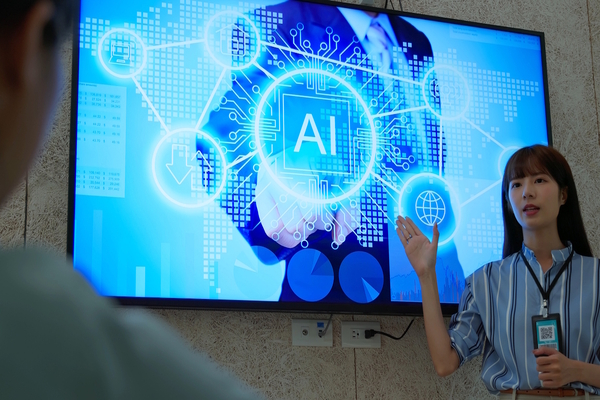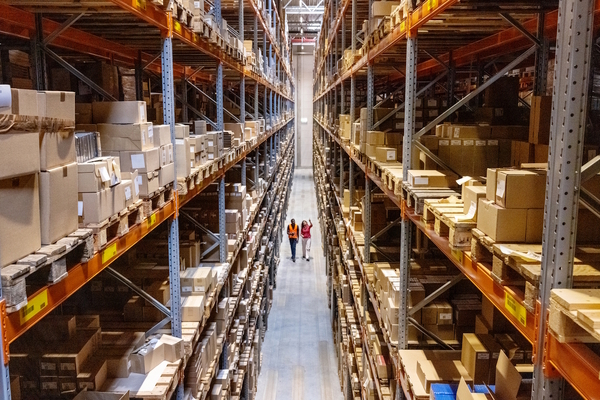Expert Panel: What is the biggest priority when preparing for the future of work?
A panel of experts shares their views on what the biggest priority is when preparing for the future of work.
 Organisations must be ready to adapt to fast-changing competitive markets and rapidly emerging business models and opportunities. Their priority should be the identification, management and development of key resources to take advantage of these changes. With the increase in intelligent automation there will be changing roles and new challenges to address, and organisations will need to build flexible and dynamic resourcing models which take advantage of new modes of continuous learning and development. Adaptive organisations will require systems and continuous investment to enable continual development and management of their strategies and performance. They need to understand what success looks like, where targets or outcomes are not being met and where changes are required. They need to be able to effectively measure and communicate business performance across their organisation, suppliers and customers.
This change will be underpinned by scalable real-time, integrated data processing almost certainly delivered via highly elastic cloud computing platforms, in turn driving changes to existing technology and data management strategies.
www.delaware.co.uk
Organisations must be ready to adapt to fast-changing competitive markets and rapidly emerging business models and opportunities. Their priority should be the identification, management and development of key resources to take advantage of these changes. With the increase in intelligent automation there will be changing roles and new challenges to address, and organisations will need to build flexible and dynamic resourcing models which take advantage of new modes of continuous learning and development. Adaptive organisations will require systems and continuous investment to enable continual development and management of their strategies and performance. They need to understand what success looks like, where targets or outcomes are not being met and where changes are required. They need to be able to effectively measure and communicate business performance across their organisation, suppliers and customers.
This change will be underpinned by scalable real-time, integrated data processing almost certainly delivered via highly elastic cloud computing platforms, in turn driving changes to existing technology and data management strategies.
www.delaware.co.uk
 The biggest priority in preparing for the future of work is the destruction of routine business. I may be biased, but I do not know of any worker who actively enjoys sitting down and working on a spreadsheet for eight hours. Not one. That’s only human, but that human reaction means these processes are vulnerable to errors, whether through fatigue, boredom, or garden-variety mistakes. The future of work will involve liberating human employees from these routine and error-prone processes. Contrary to popular belief, this does not involve taking away jobs – if anything, the opposite is true. In our modern, data-driven society, it is paramount that businesses constantly find new ways to process data and manage content. Bots can perform routines, but creating those routines? That’s something where only human ingenuity will do.
Robotic process automation has great potential to unlock the human factor in digital processes. Ultimately, the future of work is about valuing employees to do the valuable work.
www.kofax.com
The biggest priority in preparing for the future of work is the destruction of routine business. I may be biased, but I do not know of any worker who actively enjoys sitting down and working on a spreadsheet for eight hours. Not one. That’s only human, but that human reaction means these processes are vulnerable to errors, whether through fatigue, boredom, or garden-variety mistakes. The future of work will involve liberating human employees from these routine and error-prone processes. Contrary to popular belief, this does not involve taking away jobs – if anything, the opposite is true. In our modern, data-driven society, it is paramount that businesses constantly find new ways to process data and manage content. Bots can perform routines, but creating those routines? That’s something where only human ingenuity will do.
Robotic process automation has great potential to unlock the human factor in digital processes. Ultimately, the future of work is about valuing employees to do the valuable work.
www.kofax.com
LinkedIn
Jon Addison, Head of talent solutions, LinkedIn UK Tomorrow’s workplace will be more complex. Employers will be looking for different skills from candidates, who in turn are rethinking how to structure work into their lives. Nine out of 10 UK HR and hiring professionals acknowledge that so-called “soft skills” such as creativity, persuasion and adaptability are increasingly important. Humans are not robots whose achievements can be confined to a CV, and already today we see employers looking for people to contribute beyond qualifications.
At the same time, embracing flexibility and new ways of working will make companies less likely to miss out on great talent, while also making roles more accessible to groups such as mothers returning to work and older workers.
Businesses and recruiters are gradually changing their approach. Helped by new innovations such as LinkedIn Talent Insights, they can better than ever follow new workforce trends, gain real-time insights into current and prospective employees, and find and attract the talent they need to remain successful.
(+353) 1 518 5980
business.linkedin.com/ talent-solutions
Tomorrow’s workplace will be more complex. Employers will be looking for different skills from candidates, who in turn are rethinking how to structure work into their lives. Nine out of 10 UK HR and hiring professionals acknowledge that so-called “soft skills” such as creativity, persuasion and adaptability are increasingly important. Humans are not robots whose achievements can be confined to a CV, and already today we see employers looking for people to contribute beyond qualifications.
At the same time, embracing flexibility and new ways of working will make companies less likely to miss out on great talent, while also making roles more accessible to groups such as mothers returning to work and older workers.
Businesses and recruiters are gradually changing their approach. Helped by new innovations such as LinkedIn Talent Insights, they can better than ever follow new workforce trends, gain real-time insights into current and prospective employees, and find and attract the talent they need to remain successful.
(+353) 1 518 5980
business.linkedin.com/ talent-solutions
 Understanding the true potential of artificial intelligence. There is a lot of misplaced fear surrounding AI because of its presumed potential to eliminate jobs. True, it will eliminate many tasks, allowing humans to add the kind of value machines cannot offer. But we need to recognise that this technology can and will be used to complement, not substitute human effort and that it can never replace creativity or empathy. As a workforce, we should look at AI as a game-changing multiplier that will only increasing human creativity and endeavour. That’s why, with regard to the future of work, the focus of our conversation needs to be on the evolution of roles that are increasingly project-oriented – and where people are brought into a project because of a match between skills and needs – rather than jobs, where people are limited by narrow descriptions of duties. Organisations will structure themselves much more fluidly in this way, delivering value through projects that come together to deliver a clear outcome and disband. And talent will contribute specific capabilities to projects.
www.pmi.org/uk
Understanding the true potential of artificial intelligence. There is a lot of misplaced fear surrounding AI because of its presumed potential to eliminate jobs. True, it will eliminate many tasks, allowing humans to add the kind of value machines cannot offer. But we need to recognise that this technology can and will be used to complement, not substitute human effort and that it can never replace creativity or empathy. As a workforce, we should look at AI as a game-changing multiplier that will only increasing human creativity and endeavour. That’s why, with regard to the future of work, the focus of our conversation needs to be on the evolution of roles that are increasingly project-oriented – and where people are brought into a project because of a match between skills and needs – rather than jobs, where people are limited by narrow descriptions of duties. Organisations will structure themselves much more fluidly in this way, delivering value through projects that come together to deliver a clear outcome and disband. And talent will contribute specific capabilities to projects.
www.pmi.org/uk
 Embracing, not fearing, technology will allow us all to master modern work. It’s important to realise the future of work starts now. Robotics, automation, AI and virtual reality aren’t theoretical dreams. They are here now. The questions we now need to ask are “where should we apply this technology?”, “what jobs are best trusted to human hands?”, and “when should we automate?”
We all know everyone would prefer to work more flexibly, that most meetings are a waste of time, and that emails are an annoying but necessary evil. This is where we will see the value of cutting-edge technology – automating mundane low-value work so we can spend our time on the things that add the most value to our organisations.
Tomorrow will be automated, but there is no need to fear a machine apocalypse. The future will see happier and more purposeful workers who know they are spending their working hours doing things that not only matter, but that they are also best at. That’s a future we all want – together with robots that can bring us coffee in the morning.
@workfront
workfront.com/futurework
Embracing, not fearing, technology will allow us all to master modern work. It’s important to realise the future of work starts now. Robotics, automation, AI and virtual reality aren’t theoretical dreams. They are here now. The questions we now need to ask are “where should we apply this technology?”, “what jobs are best trusted to human hands?”, and “when should we automate?”
We all know everyone would prefer to work more flexibly, that most meetings are a waste of time, and that emails are an annoying but necessary evil. This is where we will see the value of cutting-edge technology – automating mundane low-value work so we can spend our time on the things that add the most value to our organisations.
Tomorrow will be automated, but there is no need to fear a machine apocalypse. The future will see happier and more purposeful workers who know they are spending their working hours doing things that not only matter, but that they are also best at. That’s a future we all want – together with robots that can bring us coffee in the morning.
@workfront
workfront.com/futurework
Delaware
Viboo Skanda-Kumar, Human capital management specialist, Delaware Organisations must be ready to adapt to fast-changing competitive markets and rapidly emerging business models and opportunities. Their priority should be the identification, management and development of key resources to take advantage of these changes. With the increase in intelligent automation there will be changing roles and new challenges to address, and organisations will need to build flexible and dynamic resourcing models which take advantage of new modes of continuous learning and development. Adaptive organisations will require systems and continuous investment to enable continual development and management of their strategies and performance. They need to understand what success looks like, where targets or outcomes are not being met and where changes are required. They need to be able to effectively measure and communicate business performance across their organisation, suppliers and customers.
This change will be underpinned by scalable real-time, integrated data processing almost certainly delivered via highly elastic cloud computing platforms, in turn driving changes to existing technology and data management strategies.
www.delaware.co.uk
Organisations must be ready to adapt to fast-changing competitive markets and rapidly emerging business models and opportunities. Their priority should be the identification, management and development of key resources to take advantage of these changes. With the increase in intelligent automation there will be changing roles and new challenges to address, and organisations will need to build flexible and dynamic resourcing models which take advantage of new modes of continuous learning and development. Adaptive organisations will require systems and continuous investment to enable continual development and management of their strategies and performance. They need to understand what success looks like, where targets or outcomes are not being met and where changes are required. They need to be able to effectively measure and communicate business performance across their organisation, suppliers and customers.
This change will be underpinned by scalable real-time, integrated data processing almost certainly delivered via highly elastic cloud computing platforms, in turn driving changes to existing technology and data management strategies.
www.delaware.co.uk
Kofax
Bryant Bell, Director of product marketing, Kofax Inc The biggest priority in preparing for the future of work is the destruction of routine business. I may be biased, but I do not know of any worker who actively enjoys sitting down and working on a spreadsheet for eight hours. Not one. That’s only human, but that human reaction means these processes are vulnerable to errors, whether through fatigue, boredom, or garden-variety mistakes. The future of work will involve liberating human employees from these routine and error-prone processes. Contrary to popular belief, this does not involve taking away jobs – if anything, the opposite is true. In our modern, data-driven society, it is paramount that businesses constantly find new ways to process data and manage content. Bots can perform routines, but creating those routines? That’s something where only human ingenuity will do.
Robotic process automation has great potential to unlock the human factor in digital processes. Ultimately, the future of work is about valuing employees to do the valuable work.
www.kofax.com
The biggest priority in preparing for the future of work is the destruction of routine business. I may be biased, but I do not know of any worker who actively enjoys sitting down and working on a spreadsheet for eight hours. Not one. That’s only human, but that human reaction means these processes are vulnerable to errors, whether through fatigue, boredom, or garden-variety mistakes. The future of work will involve liberating human employees from these routine and error-prone processes. Contrary to popular belief, this does not involve taking away jobs – if anything, the opposite is true. In our modern, data-driven society, it is paramount that businesses constantly find new ways to process data and manage content. Bots can perform routines, but creating those routines? That’s something where only human ingenuity will do.
Robotic process automation has great potential to unlock the human factor in digital processes. Ultimately, the future of work is about valuing employees to do the valuable work.
www.kofax.com
 Tomorrow’s workplace will be more complex. Employers will be looking for different skills from candidates, who in turn are rethinking how to structure work into their lives. Nine out of 10 UK HR and hiring professionals acknowledge that so-called “soft skills” such as creativity, persuasion and adaptability are increasingly important. Humans are not robots whose achievements can be confined to a CV, and already today we see employers looking for people to contribute beyond qualifications.
At the same time, embracing flexibility and new ways of working will make companies less likely to miss out on great talent, while also making roles more accessible to groups such as mothers returning to work and older workers.
Businesses and recruiters are gradually changing their approach. Helped by new innovations such as LinkedIn Talent Insights, they can better than ever follow new workforce trends, gain real-time insights into current and prospective employees, and find and attract the talent they need to remain successful.
(+353) 1 518 5980
business.linkedin.com/ talent-solutions
Tomorrow’s workplace will be more complex. Employers will be looking for different skills from candidates, who in turn are rethinking how to structure work into their lives. Nine out of 10 UK HR and hiring professionals acknowledge that so-called “soft skills” such as creativity, persuasion and adaptability are increasingly important. Humans are not robots whose achievements can be confined to a CV, and already today we see employers looking for people to contribute beyond qualifications.
At the same time, embracing flexibility and new ways of working will make companies less likely to miss out on great talent, while also making roles more accessible to groups such as mothers returning to work and older workers.
Businesses and recruiters are gradually changing their approach. Helped by new innovations such as LinkedIn Talent Insights, they can better than ever follow new workforce trends, gain real-time insights into current and prospective employees, and find and attract the talent they need to remain successful.
(+353) 1 518 5980
business.linkedin.com/ talent-solutions
Project Management Institute
Murat Bicak, Senior vice president, strategy, Project Management Institute Understanding the true potential of artificial intelligence. There is a lot of misplaced fear surrounding AI because of its presumed potential to eliminate jobs. True, it will eliminate many tasks, allowing humans to add the kind of value machines cannot offer. But we need to recognise that this technology can and will be used to complement, not substitute human effort and that it can never replace creativity or empathy. As a workforce, we should look at AI as a game-changing multiplier that will only increasing human creativity and endeavour. That’s why, with regard to the future of work, the focus of our conversation needs to be on the evolution of roles that are increasingly project-oriented – and where people are brought into a project because of a match between skills and needs – rather than jobs, where people are limited by narrow descriptions of duties. Organisations will structure themselves much more fluidly in this way, delivering value through projects that come together to deliver a clear outcome and disband. And talent will contribute specific capabilities to projects.
www.pmi.org/uk
Understanding the true potential of artificial intelligence. There is a lot of misplaced fear surrounding AI because of its presumed potential to eliminate jobs. True, it will eliminate many tasks, allowing humans to add the kind of value machines cannot offer. But we need to recognise that this technology can and will be used to complement, not substitute human effort and that it can never replace creativity or empathy. As a workforce, we should look at AI as a game-changing multiplier that will only increasing human creativity and endeavour. That’s why, with regard to the future of work, the focus of our conversation needs to be on the evolution of roles that are increasingly project-oriented – and where people are brought into a project because of a match between skills and needs – rather than jobs, where people are limited by narrow descriptions of duties. Organisations will structure themselves much more fluidly in this way, delivering value through projects that come together to deliver a clear outcome and disband. And talent will contribute specific capabilities to projects.
www.pmi.org/uk
Workfront
Jada Balster, Vice president, marketing, Workfront Embracing, not fearing, technology will allow us all to master modern work. It’s important to realise the future of work starts now. Robotics, automation, AI and virtual reality aren’t theoretical dreams. They are here now. The questions we now need to ask are “where should we apply this technology?”, “what jobs are best trusted to human hands?”, and “when should we automate?”
We all know everyone would prefer to work more flexibly, that most meetings are a waste of time, and that emails are an annoying but necessary evil. This is where we will see the value of cutting-edge technology – automating mundane low-value work so we can spend our time on the things that add the most value to our organisations.
Tomorrow will be automated, but there is no need to fear a machine apocalypse. The future will see happier and more purposeful workers who know they are spending their working hours doing things that not only matter, but that they are also best at. That’s a future we all want – together with robots that can bring us coffee in the morning.
@workfront
workfront.com/futurework
Embracing, not fearing, technology will allow us all to master modern work. It’s important to realise the future of work starts now. Robotics, automation, AI and virtual reality aren’t theoretical dreams. They are here now. The questions we now need to ask are “where should we apply this technology?”, “what jobs are best trusted to human hands?”, and “when should we automate?”
We all know everyone would prefer to work more flexibly, that most meetings are a waste of time, and that emails are an annoying but necessary evil. This is where we will see the value of cutting-edge technology – automating mundane low-value work so we can spend our time on the things that add the most value to our organisations.
Tomorrow will be automated, but there is no need to fear a machine apocalypse. The future will see happier and more purposeful workers who know they are spending their working hours doing things that not only matter, but that they are also best at. That’s a future we all want – together with robots that can bring us coffee in the morning.
@workfront
workfront.com/futurework Nick Scheffer
Most Viewed
Winston House, 3rd Floor, Units 306-309, 2-4 Dollis Park, London, N3 1HF
23-29 Hendon Lane, London, N3 1RT
020 8349 4363
© 2025, Lyonsdown Limited. Business Reporter® is a registered trademark of Lyonsdown Ltd. VAT registration number: 830519543





